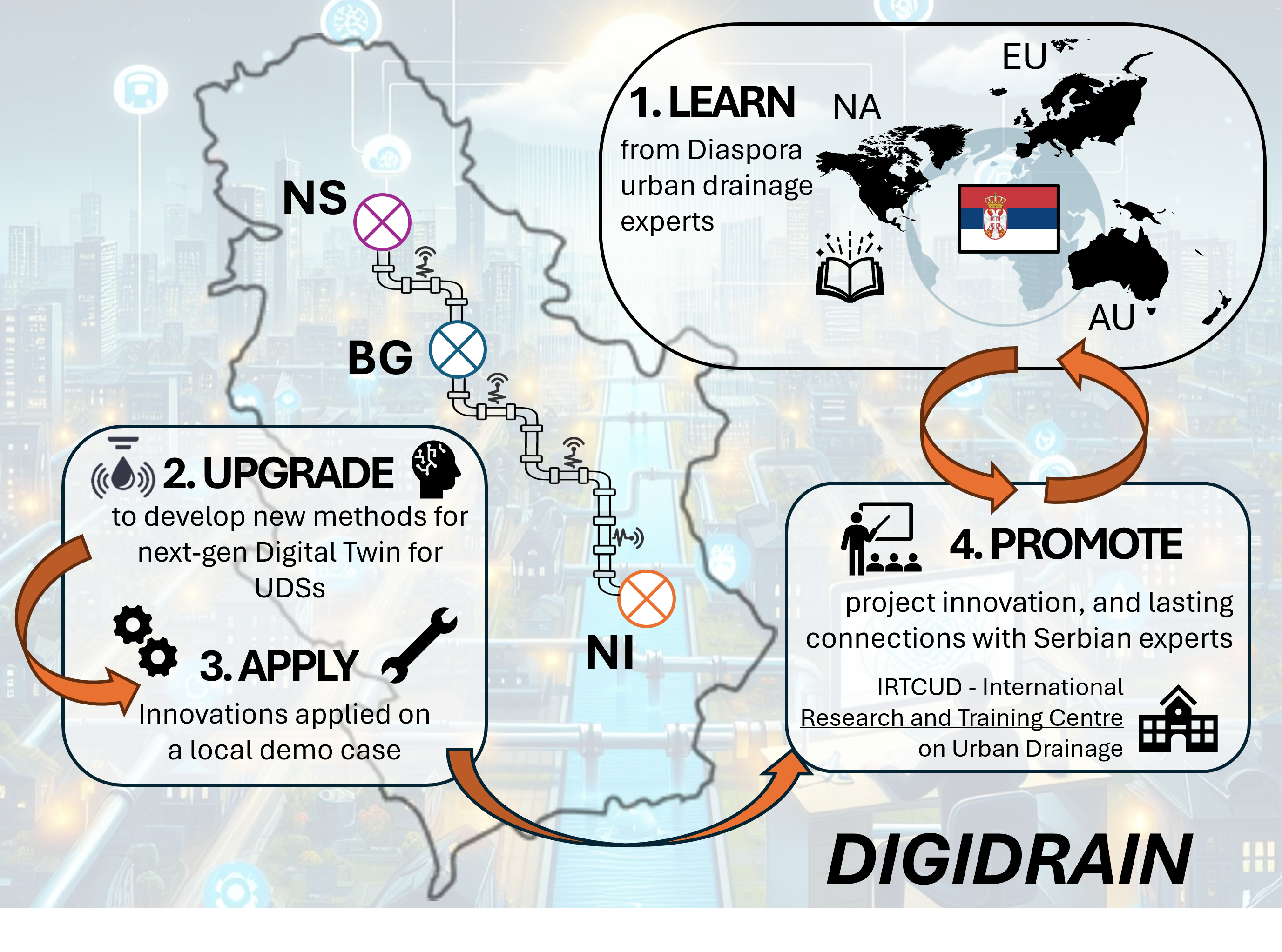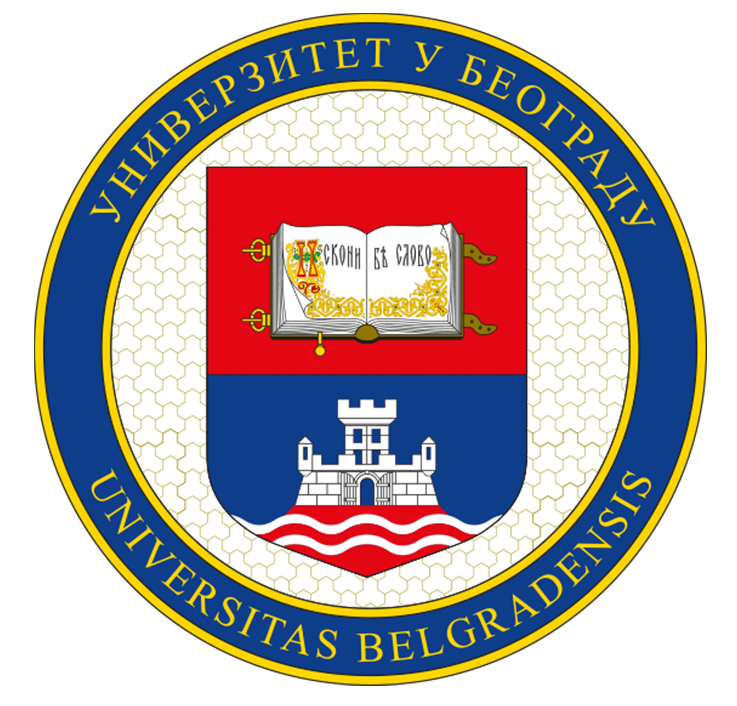Рузвелтова 1а, Београд
Зграда Завода за физику
City-scale digital twins for urban drainage systems – bringing “smart” to water infrastructure - DIGIDRAIN
| Status: | Active |
| Funding program: | Science Fund of the Republic of Serbia – program DIASPORA 2023 |
| Participating SROs from Serbia: | • Faculty of Civil Engineering, University of Belgrade • The Institute for Artificial Intelligence Research and Development of Serbia • Faculty of Civil Engineering and Architecture, University of Niš |
| Participating SROs from Diaspora: | • KWR Water Research Institute • TU Delft • Queensland University of Technology • Toronto Metropolitan University • Imperial College London |
| Stakeholders supporting project: | • IRTCUD • Public Utility Company “Belgrade Waterworks and Sewerage” • AtkinsRealis |
| Principal Investigator (PI): | Assist. prof. Miloš MILAŠINOVIĆ, PhD Civil Eng. |
| Starting date: | 1.12.2024. |
| Project duration: | 2 years |
| Project web page: | https://digidrain.dwel.rs |
| Project logo: |  |
Abstract:
Urban drainage infrastructure faces major challenges to keep desired performance levels due to aging systems, worsened by both natural and anthropogenic factors. To address these challenges and enhance the sustainability, safety, and resilience of urban drainage systems (UDSs), innovative management solutions and strategies are a must. Ongoing digital transformation represents an opportunity for water utilities to solve some of the urgent issues they are facing. Digital Twins (virtual replicas) could be a viable decision support tool for water utilities. DIGIDRAIN project aims at contributing to the creation of such a next-gen Digital Twin (DT) framework for UDSs. The project is based on knowledge transfer between diaspora experts and Serbian researchers and on synergy of Serbia-Diaspora team in joint research toward next-gen DT framework. The research aims at developing solutions for integrating the UDS sensor data and simulation model into the DT. This can help water utilities to: (1) enable energy efficiency and efficiency in resources allocation through real-time monitoring and modelling of the UDS, (2) create safe virtual environment to assess various “what-if” scenarios and inform contingency planning and operation decisions, and (3) create virtual environment for developing and testing novel blue-green technologies (aka NBS) to increase system resilience. The innovative solutions will be developed using international open access databases and will be demonstrated on a local demo site. During the project industrial stakeholders will be actively involved in project activities which will help in increasing outreach to other industrial end-users.
| |

|
|


